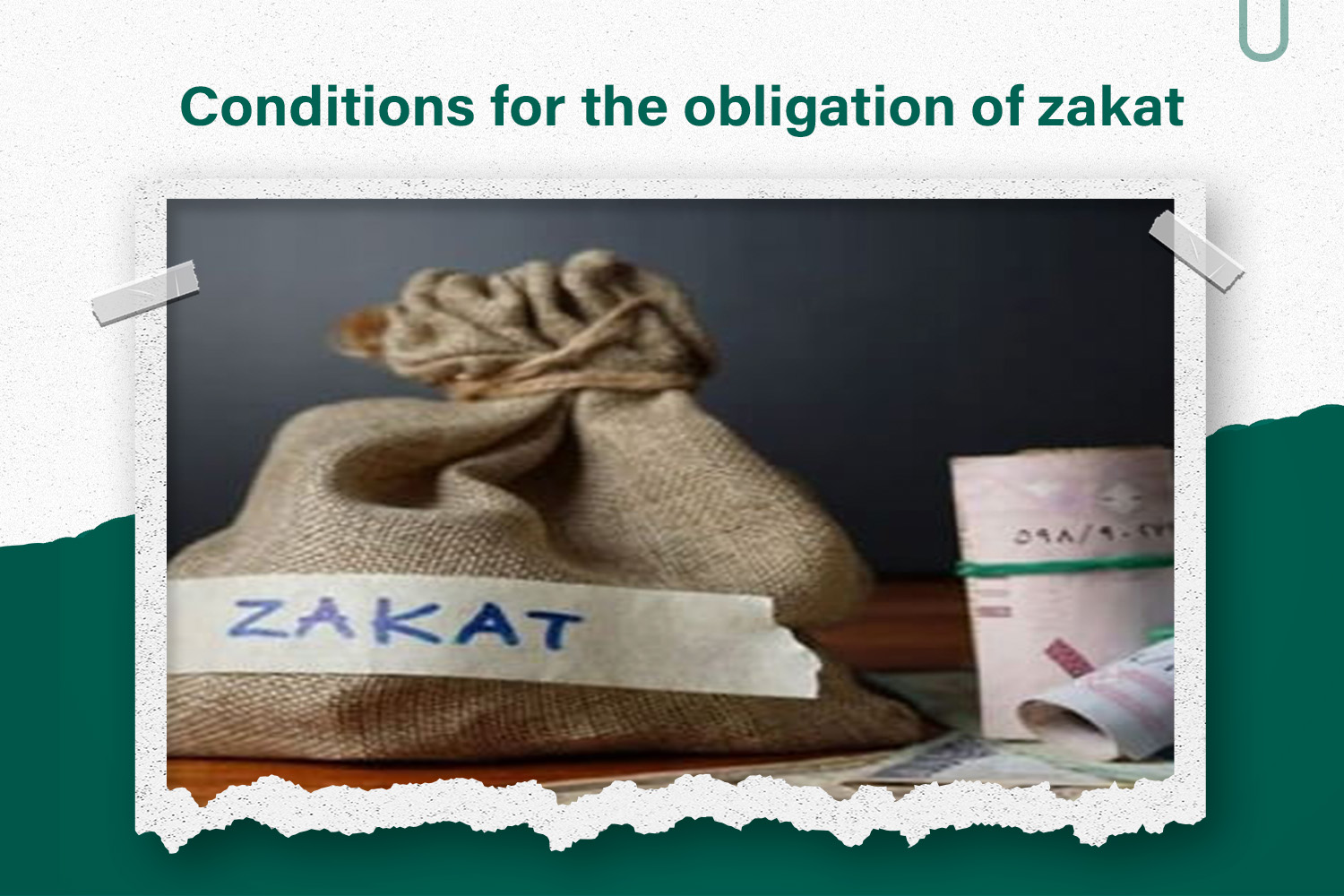Conditions for the obligation of Zakat
Zakat is one of the pillars of Islam and means giving financial rights to the poor and needy. Zakat is considered an obligation for rich Muslims who possess wealth that has exceeded the limit set by the Quorum, a person must pay a certain part of his annual wealth for charity and distribute it to the poor and needy, zakat is considered an argument for Muslims and reflects the spirit of solidarity and social responsibility in Islam.
The concept of Zakat
Zakat is a religious imposition in Islam that requires rich Muslims to pay a specified part of their wealth annually to the poor and needy. Zakat is considered an expression of social solidarity and social responsibility in the Islamic religion. Zakat aims to achieve economic justice and the development of society in general. Zakat is one of the five pillars of Islam and reflects the spirit of brotherhood and cooperation among Muslims.
The importance of Zakat in Islam
Zakat is one of the fundamental pillars of Islam, as it achieves social justice and solidarity among Muslims. It expresses the spirit of brotherhood and cooperation in Islamic society, where part of the wealth of the rich is paid to the needy and the poor. Zakat is a purification of funds and development of society in general. The concept of giving and sacrificing to others is also implemented in Muslims.
Elements and conditions of Zakat
The pillars of Zakat consist of two: Nisab and al-Hawl. A person must have a financial value that exceeds the minimum set for the Quorum, which is the limit that must be exceeded to be obliged to pay zakat. As for squint, it refers to the person enjoying the ownership of money for a whole year until he is obliged to pay zakat for the following year. These conditions determine the obligation of Zakat on Muslims.

obligation of Zakat
Pillars of zakat payment
The pillars of paying Zakat consist of two: fixing the Nisab and squinting. A person must have a financial value that exceeds the minimum set for the Quorum, which must be exceeded in order to be obliged to pay zakat. As for squint, it indicates that a person enjoys ownership of money for a whole year until he needs to pay zakat for the following year. These two conditions determine the obligation of Zakat on Muslims.
Conditions for determining the Binding of Zakat
The conditions for determining the binding nature of Zakat are divine wisdom and sharia legislation. A person must have a monetary value in excess of the established minimum quorum, and he must have this money for a whole year. If these conditions are met, the person is obliged to pay zakat in accordance with the directions of Islamic law.
How to calculate Zakat
Zakat is calculated based on a certain percentage of financial wealth. Zakat is calculated on cash, investments, gold, silver, plantations, land and real estate. Zakat in the amount of 2.5% of the total wealth exceeding the limit set for the Nisab must be paid after a full year has passed. Financial tables and equations can be used to calculate Zakat easily.
Calculation of Zakat on funds
Zakat is calculated on funds in the amount of 2.5% of the total amount of funds exceeding the established limit of the Nisab. This includes cash, investments, bank accounts, dividends, donations and outstanding debts. Zakat is calculated after a full year has passed on those funds, and the available financial tables and equations can be used to facilitate calculations and determine the amount due for Zakat.
Calculation of Zakat on land and real estate
Zakat on land and real estate is calculated at 2.5% of its total value after a full year has passed on those lands and real estate. The value of the property must be assessed according to the current market, and this value is used to calculate the amount due for Zakat. Financial tables and equations can be used to facilitate the process of calculating Zakat on land and real estate.
Signs of verification of The Binding of Zakat
Signs of verification of the obligation of Zakat include attention to annual income and exceeding the specified quorum, accurate and regular evaluation of funds and investments. A Muslim should review his accounts and the level of his annual income to make sure that he has exceeded the required quorum. Funds and investments with a fair value must also be evaluated to determine the obligation to pay zakat.
Annual income and exceeding the Quorum
One of the most important signs of verification of The Binding of Zakat is exceeding the specified quorum. A Muslim should review his accounts and the level of his annual income to make sure that he has exceeded the required quorum. If the annual income exceeds the established limit, then he is obliged to pay zakat. The quorum is considered a specific value that determines the limit of wealth from which a Muslim must pay zakat.

obligation of Zakat
Valuation of funds and investments
The evaluation of funds and Investments is an important part in determining the Binding of Zakat. A Muslim should evaluate the value of his money and investments based on the prevailing fair value in the market. This is done through the valuation of stocks, bonds, real estate, working funds and savings. When the value of these assets exceeds the specified quorum, Zakat becomes binding on its owner.
The impact and religious benefits of paying Zakat
Paying Zakat has a great religious impact and benefits in the life of a Muslim. It expresses balance and social justice, promotes the spirit of brotherhood and solidarity among members of society. In addition, they help to purify money and remove greed and greed from the hearts of Muslims. Zakaah is also paid to earn the favor of Allah SWT and achieve reward and reward in this life and the hereafter. The obligation to pay Alms is a true expression of loyalty, charity and piety.
The importance of purifying funds
The purification of money is of great importance in the Islamic religion. Zakat contributes to the purification of money, cleansing it from greed and greed. By paying Zakat, the reward and Blessing are directed to the funds, the funds are characterized by purity and zakat removes the obstacles that block the blessing from them. The purification of money gives a Muslim peace of mind, peace of conscience and spiritual stability.
The social and spiritual impact of Zakat
The payment of Zakat contributes to the improvement of the social situation of needy communities. It works to reduce poverty and improve the standard of living of the most needy individuals. In addition, Zakat promotes positive spirituality, such as generosity, cooperation and giving. It promotes compassion and brotherhood among Muslims and promotes the spirit of love and tolerance in society.
Conclusion
Zakat is one of the important religious pillars in Islam, and it is of great importance in improving the social and spiritual condition of societies. The obligation of individuals to pay zakat reflects the interdependence and cooperation among Muslims, and promotes the values of generosity and generosity. Therefore, all Muslims should identify and adhere to the obligation of zakat as a fundamental religious and social duty to promote justice and balance in society.
The importance of the obligation to pay zakat
Muslims should be obliged to pay zakat, this reflects their commitment to the values of charity and social solidarity. The payment of Zakat contributes to the improvement of the economic and social condition of needy and professional individuals. It also purifies the funds and gives them blessing and Grace. By taking care of the poor and needy, Muslims promote justice and balance in society. The obligation to pay zakat promotes good values and helps to achieve equality in society.
Sharia guidelines for determining the binding nature of Zakat
There are several Sharia guidelines for determining the Binding of Zakat. Among these guidelines, determining the minimum quorum that funds can exceed to become obligated to zakat, and determining the time that must elapse on the possession of funds before they become obligated to zakat. A certain percentage is also determined for the payment of Zakat on the money that is in the potentials being invested.
You can visit the Ahad Association website to find out more about the projects it offers
Related articles:
Social and economic benefits of Zakat
Join us in our message by donating




